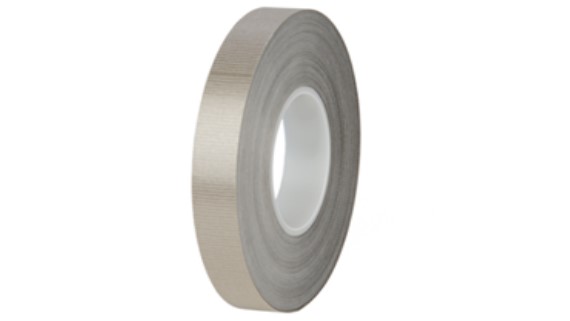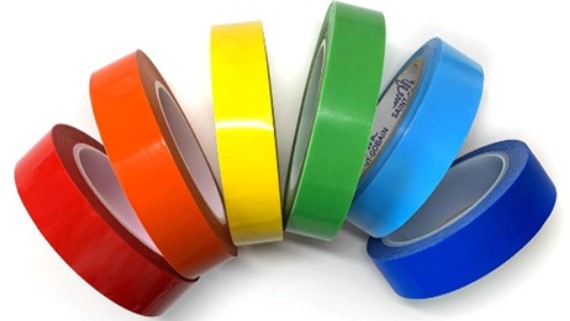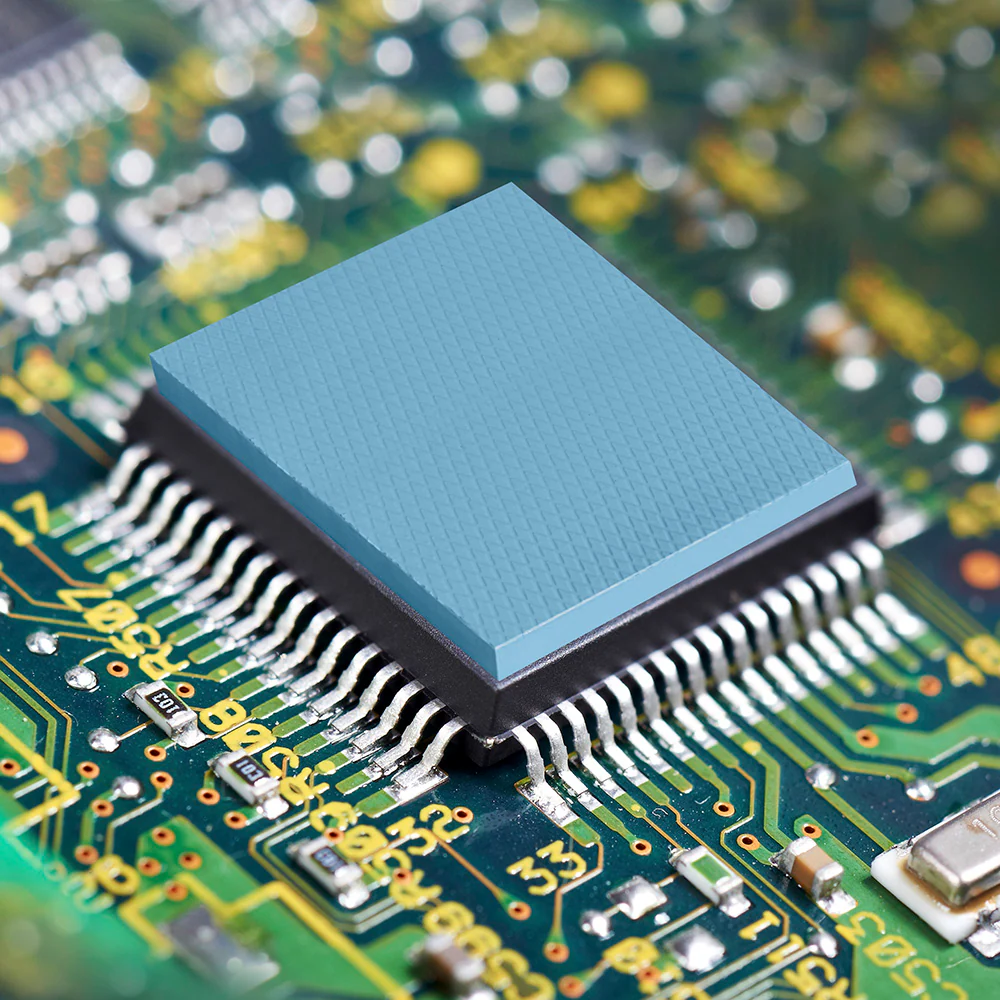Product Description
Matrix foil tapes, encompassing aluminum, copper, and silver variants, offer engineers unparalleled thermal and electrical conductivity, making them ideal for industries such as electronics, aerospace, and telecommunications. These tapes excel in EMI/RFI shielding, heat dissipation, and electrical connectivity. Engineers benefit from their outstanding performance in applications requiring precise thermal management and electromagnetic interference protection, ensuring reliable and efficient operation in demanding environments.


Value Added
Matrix enhances its role as a foil tape partner through in-house converting expertise, including kiss cutting, rotary die cutting, and precision slitting. These advanced techniques empower engineers with customized foil tape solutions, ensuring precise fitment, minimal waste, and superior performance across demanding technical applications.
Frequently asked questions
If you have a question that is not addressed in our FAQ please click 'Contact Matrix' at the top of the page and submit. We will answer directly and add it to our FAQ to benefit the entire engineering community.
Your vision! Our expertise! Collaborating with engineering teams is what we do best! We listens to your priorities, and create a customized solution tailored to your specific requirements.
1. Aluminum Foil Tapes:
- Description: Tapes with an aluminum foil backing.
- Benefit for Engineers: Excellent thermal conductivity, effective heat dissipation, and resistance to high temperatures for thermal management applications.
2. Copper Foil Tapes:
- Description: Tapes with a copper foil backing.
- Benefit for Engineers: Outstanding electrical conductivity, EMI/RFI shielding, and grounding capabilities, crucial for electronics and electrical applications.
3. Silver Foil Tapes:
- Description: Tapes with a silver foil backing.
- Benefit for Engineers: Exceptional electrical conductivity, ideal for advanced electronics and telecommunications, offering high-performance circuitry.
Matrix foil tape solutions provide engineers with materials that offer unique properties, catering to specific technical needs in industries such as electronics, aerospace, telecommunications, and more.
1. Aluminum Foil Tapes:
- Benefit for Engineers: Exceptional thermal conductivity and heat resistance for effective thermal management.
2. Copper Foil Tapes:
- Benefit for Engineers: Superior electrical conductivity and EMI/RFI shielding capabilities, crucial for electronics and electrical applications.
3. Silver Foil Tapes:
- Benefit for Engineers: Exceptional electrical conductivity, ideal for high-performance electronics and telecommunications.
4. Lead Foil Tapes:
- Benefit for Engineers: Radiation shielding properties, making them suitable for healthcare and nuclear industries.
5. Reinforced Foil Tapes:
- Benefit for Engineers: Added strength and durability for applications requiring mechanical support and reinforcement.
6. Kapton Foil Tapes:
- Benefit for Engineers: Excellent temperature resistance and electrical insulation, ideal for aerospace and electronics.
7. Copper Shielding Tapes:
- Benefit for Engineers: Reliable EMI/RFI shielding, ensuring signal integrity in sensitive electronic devices.
8. Lead Foil Insulation Tapes:
- Benefit for Engineers: Efficient radiation protection and insulation in nuclear and medical environments.
9. Tin Foil Tapes:
- Benefit for Engineers: Corrosion resistance and electrical conductivity for various industrial applications.
10. Lead-Free Foil Tapes:
- Benefit for Engineers: Environmentally friendly alternative with radiation shielding properties, suitable for healthcare and industry.
1. Temperature Resistance: Verify that the tape can withstand the operating temperatures within the intended environment, including extreme heat or cold.
2. Electrical Properties: Evaluate the tape’s electrical conductivity or insulating properties based on the application’s electrical requirements.
3. EMI/RFI Shielding: Consider the tape’s effectiveness in electromagnetic interference (EMI) and radiofrequency interference (RFI) shielding, crucial for sensitive electronics.
4. Adhesive Type: Assess the type of adhesive used and its compatibility with the substrate material, as well as its adhesive strength and durability.
5. Conformability: Evaluate the tape’s ability to conform to irregular shapes or surfaces, as it may impact its suitability for specific applications.
6. Chemical Compatibility: Confirm that the tape is resistant to chemicals, solvents, or substances it may encounter during operation.
7. Thickness and Durability: Examine the tape’s thickness, mechanical strength, and overall durability to meet the application’s requirements.
8. Cost-Effectiveness: Analyze the cost of the tape in relation to the project budget, considering long-term performance and value.
9. Customization Options: Determine whether the tape can be customized or fabricated to meet specific dimensions or requirements.
10. Regulatory Compliance: Ensure that the selected tape complies with industry-specific regulations, standards, or certifications.
11. Environmental Conditions: Account for environmental factors, such as exposure to UV radiation, moisture, or outdoor elements, that may impact tape performance.
12. Testing and Prototyping: Conduct thorough testing and prototyping to validate the tape’s performance under real-world conditions before full-scale implementation.
1. Electronics EMI Shielding:
- Problem: Electromagnetic interference (EMI) disrupts sensitive electronic components.
- Solution: Copper or silver foil tapes provide effective EMI shielding.
- Industry and Application: Electronics manufacturing, aerospace, telecommunications.
2. Thermal Management in Electronics:
- Problem: Efficient heat dissipation is needed in electronic devices.
- Solution: Aluminum foil tapes with high thermal conductivity manage heat effectively.
- Industry and Application: Electronics manufacturing, circuit boards.
3. Fireproofing and Insulation:
- Problem: Protecting against high temperatures and fire hazards.
- Solution: Vermiculite-coated foil tapes offer enhanced fire resistance and heat insulation.
- Industry and Application: Construction, industrial furnaces, automotive fire barriers.
4. Radiation Shielding in Healthcare:
- Problem: Radiation exposure during medical procedures.
- Solution: Lead foil tapes provide efficient radiation shielding.
- Industry and Application: Medical radiology, nuclear medicine.
5. Mechanical Reinforcement:
- Problem: Need for added strength and durability.
- Solution: Reinforced foil tapes provide mechanical support.
- Industry and Application: Aerospace, composites manufacturing, structural reinforcement.
6. High-Temperature Sealing:
- Problem: Creating heat-resistant seals in industrial settings.
- Solution: Aluminum or copper foil tapes serve as reliable gaskets.
- Industry and Application: Petrochemical, manufacturing, high-temperature sealing.
7. Cryogenic Insulation:
- Problem: Insulating at extremely low temperatures.
- Solution: Aluminum or copper foil tapes offer thermal stability.
- Industry and Application: Cryogenics, space exploration.
8. HVAC Duct Sealing:
- Problem: Preventing air leakage and insulating HVAC systems.
- Solution: Aluminum foil tapes are used for sealing and insulation.
- Industry and Application: HVAC systems, construction.
9. Corrosion Resistance:
- Problem: Protection against corrosion in harsh environments.
- Solution: Tin foil tapes offer corrosion resistance and electrical conductivity.
- Industry and Application: Marine, automotive, industrial.
10. Environmental Protection:
- Problem: Ensuring airtight and watertight seals.
- Solution: Lead-free foil tapes provide environmental sealing.
- Industry and Application: Construction, automotive, general sealing.
COMPARE
Compare Options
Click below to get a customized comparison chart tailored to your application.
1
2
3
| 1 | 2 | 3 | |
| Consideration | Aluminum Foil Tape | Copper Foil Tape | Kapton Tape |
| Temperature Resistance | Very Good | Very Good | Very Good |
| Electrical Conductivity | Moderate | Very Good | Good |
| EMI/RFI Shielding | Moderate | Very Good | Good |
| Flame Resistance | Good | Good | Very Good |
| Chemical Resistance | Moderate | Good | Very Good |
| Adhesive Strength | Good | Good | Very Good |
| Conformability | Good | Moderate | Good |
| Thickness and Durability | Good | Good | Good |
| Cost-Effectiveness | Moderate | Moderate | Good |
| Customization Options | Good | Good | Good |






